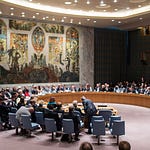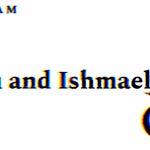Trump’s recent remarks—backed by funding from influential donors with close ties to Zionist interests—suggested the absurd idea of “owning” Gaza. At first blush, this seems preposterous, it did to me. But if one considers that the Zionist state has long depended on American financial support, shouldn’t we ask: why not claim Tel Aviv instead? From this perspective, Tel Aviv holds sway over U.S. policy in a cycle of mutual dependency—one built on political favors and financial influence. Is it worth accepting such leverage, especially when American funds have been used to support policies that many view as fueling further conflict in Gaza? The answer, for many critics, is a resounding no.
With Trump now adopting a monarchical air, it is hard not to recall that the British once controlled both Tel Aviv and Gaza. In many ways, the American Empire, as the self-styled heir to British global influence after World War II, might consider a similar approach: taking control of the Holy Land as a whole, without favoring one ethnic group over another. While Trump’s larger-than-life ego has already been on display—as evidenced by symbolic gestures such as naming Israeli roads after him and familial ties with influential figures like Kushner—this might offer a lesson. Perhaps a strategic embrace of this bold symbolism by pro-Palestinian groups could shift the balance of power.
In a world where money talks, familial connections wield power, and flattery in the form of public honors can alter geopolitical dynamics, it is worth asking if the current model is sustainable. As Trump himself has noted prior to his re-election, Israel appears to have lost the public relations battle, and its military options remain solely dependent on U.S. funding. Without that financial support, Israel’s strategic position would crumble.
Looking back at the British Mandate in Palestine, their loss of control wasn’t solely due to initially broken promises once made by Balfour or acts of Arab and Zionist violence—such as the Zionist Terrorist bombing of the King David Hotel or the Arab Revolt in Palestine—but also because of a broader rejection of externally imposed rule. According to a former Israeli PM, the late Queen Elizabeth considered Israelis “terrorists or sons of terrorists”, and she was right if she did in fact say this. Some argue that the current Zionist project, which critics say has been built on a foundation of state-sanctioned violence and political maneuvering, may be reaching a similar turning point. Drawing on prophetic warnings from figures like Secretary of State George Marshall—who led the opposition in Truman’s cabinet to the alliance with the Zionist Ethno-State.—there emerges a call for America to reassess its role in the Middle East.
For those who view American involvement as an unwelcome interference that has contributed to endless bloodshed, the proposal is stark: it is time to consider restoring a mandate over Palestine under American rule, one that treats both Arab and Jewish communities equally. In an era where strategic interests and financial allegiances shape global politics, is it not a moral imperative to break the cycle of dependency and conflict once and for all?
Critics point to the significant financial influence in American politics and argue that foreign funding, including from donors with strong ideological leanings, has, at times, skewed policy in ways that benefit established interests. This line of thinking raises a provocative question: if political decisions are so deeply intertwined with financial contributions, is it possible to reconfigure the relationship between donor influence and state policy?
Historically, the British Mandate in Palestine was an imposition of power, driven by the geopolitical interests of the time. In the aftermath of World War II, as the American global role expanded, many of the colonial practices were abandoned in favor of new models of international engagement. Yet, some argue that America’s involvement in the region has taken on a similarly problematic character. They contend that current political alignments, financial dependencies, and strategic alliances have contributed to a cycle where regional policies are sometimes dictated more by external influence than by the aspirations of local populations.
What if, instead of perpetuating a system where financial clout and political favors determine policy outcomes, a new framework were established—one that draws on historical lessons without repeating past inequities? Such a mandate might prioritize balanced governance for both Jewish and Arab communities in the Holy Land. The challenge, of course, is to develop a system free from the influences of partisan funding and entrenched power structures.
There is no simple answer. The proposal to rethink American involvement in Palestine by exploring a mandate model is inherently controversial. It touches on sensitive issues of sovereignty, national identity, and self-determination, while also questioning the broader impact of foreign influence on domestic politics. Nonetheless, it is an invitation to consider whether a shift in approach could reduce long-standing tensions and open up new avenues for peaceful coexistence.
In a world where strategic interests and financial ties often dictate policy, this debate serves as a call to reflect on how history might inform a future where governance is more just, transparent, and responsive to the needs of all peoples in the region.











